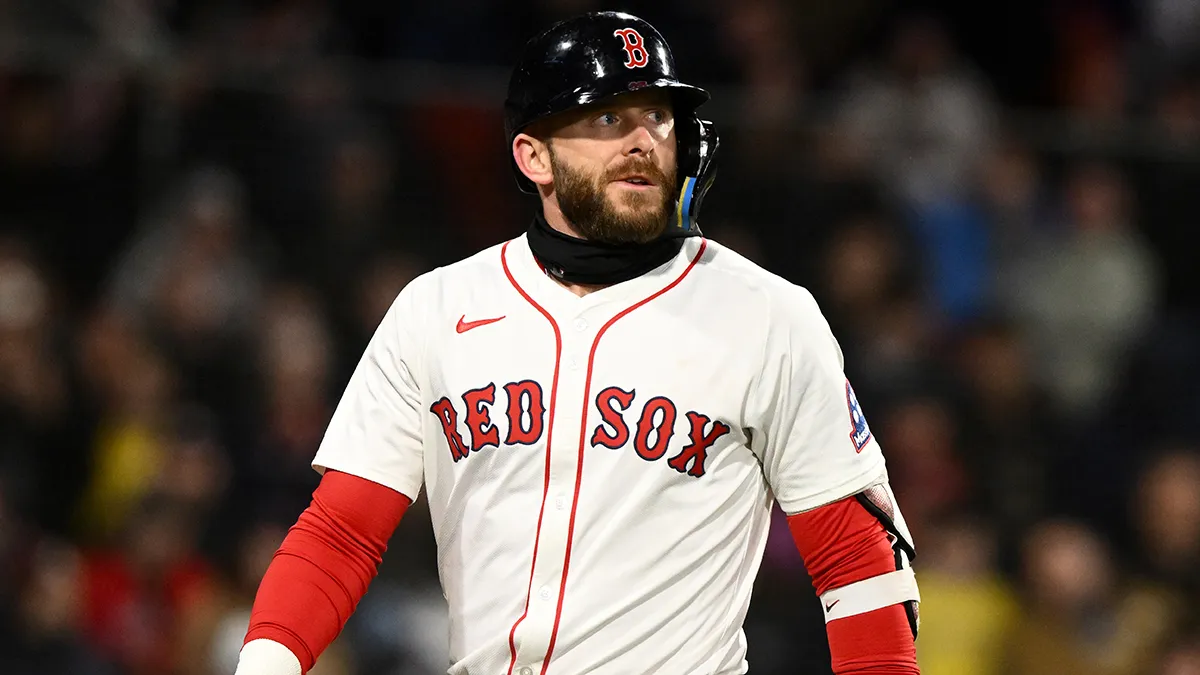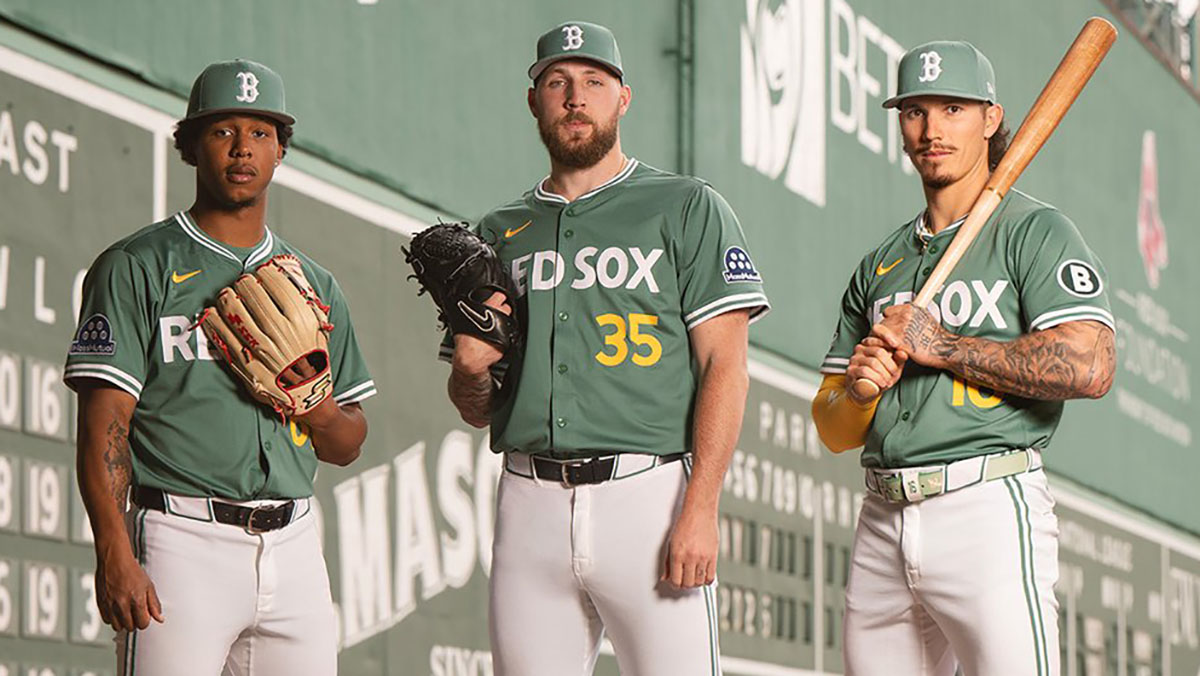The Red Sox have made plenty of shrewd acquisitions over the last 20 years, from signing David Ortiz to trading for Curt Schilling to drafting Mookie Betts, with four World Series trophies as a result.
But given their volume of high-profile deals, it's inevitable that some will miss.
And so to kick off our Hindsight 2020 series from a front office perspective, we're going to break down one Red Sox move that would best be undone.
Get the latest news and analysis on all of your teams from NBC Sports Boston by downloading the My Teams App
From an historical perspective, convincing Harry Frazee not to send Babe Ruth to the Yankees would probably be a good place to start, but that's too obvious. If we fast-forward to Christmas of 1980, then we'd encourage Haywood Sullivan to show a little more urgency finding a post office with free agency beckoning for Carlton Fisk and Fred Lynn. That's another easy one.
Bad free agent decisions usually stem from organizational breakdowns, which is why Ben Cherington's decision to sign Hanley Ramirez and Pablo Sandoval in the 2014 offseason isn't the choice, nor is Theo Epstein's acquisition of Carl Crawford or Matt Clement. Those were moves born of necessity after other player development and/or payroll mishaps.
No, today, we're going to consider an overlooked decision that nevertheless cost the franchise a Hall of Famer. Money wasn't the issue, nor was desperation. This came down to straight talent evaluation between a pair of All-Stars, and the Red Sox chose wrong.
Boston Red Sox
Find the latest Boston Red Sox news, highlights, analysis and more with NBC Sports Boston.
So let's revisit the case of Adrian Beltre and the circumstances that led him to leave Boston after a one-and-done season that could've been so much more.
A 48-home run hitter and MVP runner-up with the Dodgers in 2004, Beltre signed a five-year, $64 million contract with the Mariners that left him spending his prime in exile, lost to the cavernous dimensions of Safeco Field.
He failed to make an All-Star team or top 26 homers in the Pacific Northwest, though he did win a pair of Gold Gloves. When he hit free agency before the 2010 season, agent Scott Boras sought a "pillow contract" that would allow Beltre to re-establish his value before returning to free agency a year later.
The Red Sox provided it with a one-year, $10 million offer. Beltre rewarded them, and then some, hitting .321, leading the league in doubles, making his first All-Star team, and winning a Silver Slugger. The Red Sox missed the playoffs anyway because of lousy pitching beyond 19-game winner Jon Lester and All-Star Clay Buchholz.
It wasn't Beltre's fault. He delivered not just on the field, but in the clubhouse, where his combination of professionalism, intensity, and self-deprecation made him widely respected, a reputation that would only grow in ensuing seasons. (There's a reason, a decade later, that Mitch Moreland believed Beltre would be just the man to mentor Rafael Devers through early-career struggles.)
Beltre's contract was structured to guarantee he'd spend only one year in Boston, with a $5 million player option both sides knew he'd decline.
Boston faced decisions that offseason. Both Beltre and All-Star catcher Victor Martinez were free agents, and Epstein had his sights on the long-time object of his affection: All-Star first baseman Adrian Gonzalez.
At that point in their respective careers, few would've argued the 30-year-old Beltre represented a better bet than the 27-year-old Gonzalez, a former No. 1 overall pick who had already won a pair of Gold Gloves while blasting 40 homers in San Diego, no hitter's paradise.
With homegrown All-Star Kevin Youkilis one year into a $41 million extension and capable of playing either corner, Epstein had a decision to make: Beltre at third or Gonzalez at first.
He didn't have to think long or hard. He had openly lusted after Gonzalez for years, and on Dec. 6, swung a deal with former protégé Jed Hoyer, sending a package of three prospects, including future All-Star Anthony Rizzo, to San Diego.
Beltre was attending David Ortiz's charity golf tournament in the Dominican and didn't know the deal had been consummated until a couple of Boston reporters relayed the news. He grimaced, but his sadness proved short-lived. Within a month, the Rangers delivered a five-year, $80 million offer that might be the best free agent contract of the decade.
Over the next eight years, Beltre transformed himself into a Hall of Famer, making three All-Star teams, winning three Gold Gloves, and finishing in the top 10 of MVP voting for five straight years. He recorded his 3,000th hit in a Rangers uniform, and was a driving force behind four playoff berths, including a heartbreaking World Series loss to the Cardinals in 2011.
Meanwhile, Gonzalez immediately signed a $154 million extension and posted monster numbers, but nonetheless came to represent the unlikable, entitled and whiny 2011 team that collapsed down the stretch. A year later, Cherington blew up the roster by shipping Gonzalez, Crawford and Josh Beckett to the Dodgers.
It's easy to wonder what might've been. Youkilis shifted to third from first base, where he had won a Gold Glove, and made an All-Star team, but injuries had already started taking their toll. A year later, he'd be traded after clashing with manager Bobby Valentine.
The 2011 collapse made Valentine's disastrous tenure possible, because it forced out both Epstein and manager Terry Francona. Could Beltre, one of the game's most respected leaders, had made a difference that September? Outside of Jacoby Ellsbury, the Red Sox wilted and desperately needed a steadying influence. At the very least, Beltre probably wouldn't have complained about inconvenient Sunday night travel while the season was going down the toilet.
If there's a saving grace, it's that Epstein and the front office recognized the deep 2011 draft as their final opportunity to spend with impunity before baseball imposed limits in the new CBA. They used the two compensatory picks they received for Beltre to take Blake Swihart and Jackie Bradley Jr. as part of a haul that also yielded Matt Barnes, Mookie Betts, and Travis Shaw.
Bradley helped the team win a World Series in 2018, and he also earned a ring in 2013.
Gonzalez posted solid but unspectacular numbers in L.A. before hitting .237 in 54 games with the 2018 Mets. He hasn't played since, meaning his career is likely over at age 37.
Beltre also played his final game in 2018, but he departed to significantly more fanfare, retiring with 3,166 hits, 477 homers, 93.6 WAR ... and one giant what-might-have-been in Boston.


